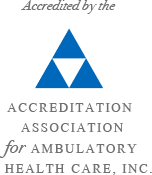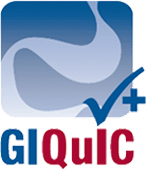Why Would You Need an Esophageal Dilation?
 When you have difficulty swallowing food due to a narrowed esophagus, your doctor might recommend undergoing esophageal dilation. This procedure involves stretching your esophagus in order to open it up more.
When you have difficulty swallowing food due to a narrowed esophagus, your doctor might recommend undergoing esophageal dilation. This procedure involves stretching your esophagus in order to open it up more.
Why Would You Need Your Esophagus Stretched?
You might need to have your esophagus stretched if you have been having trouble swallowing or other problems caused by a narrowed esophagus. When you swallow, you might experience discomfort when your esophagus becomes too narrow. This can affect your ability to eat if pain and discomfort are severe enough.
What Causes Your Esophagus to Narrow?
Different conditions can cause a narrowed esophagus, but it commonly occurs due to scarring from acid reflux. Other conditions that can cause a narrowed esophagus include rings of extra tissue, radiation treatment or esophageal cancer, although these are less common.
How Long Does an Esophageal Dilation Procedure Take?
This depends on the type of dilation procedure your doctor uses. Some procedures involve taking a sedative that helps you stay calm. You’ll need to remain under your doctor’s care until this sedative wears off. You can also expect to have your throat sprayed with a local anesthetic. If you do not take sedatives, you might be allowed to leave sooner.
What Can I Eat After Esophageal Dilation?
You can resume your normal diet when your doctor says it’s safe to do so. At first, you will need to wait for numbness in your throat to wear off before having liquids. It’s important to follow your doctor’s instructions after this procedure so that your esophagus heals properly.
How Can I Strengthen My Esophagus?
You can strengthen your esophagus by making certain changes to your lifestyle, such as eating small meals and giving up smoking. These changes help lower your risk of having a narrowed esophagus. Other changes include avoiding foods that trigger acid reflux, such as spicy foods and citrus products.
How Soon Can You Eat After Esophageal Dilation?
Your doctor will let you know when it’s safe to eat after you have had esophageal dilation. Keep in mind that you might have a mild sore throat at first, so consider having soft foods when it’s safe to eat.
Why Do Doctors Stretch the Esophagus?
Doctors stretch the esophagus in order to ease symptoms, such as trouble swallowing or discomfort. Keep in mind that the effects of this procedure can wear off over time. Your doctor can let you know other ways to help maintain a more open esophagus, so that you don’t experience symptoms again.
What Are the Symptoms of Narrowing of the Esophagus?
When you have narrowing of the esophagus, you might experience certain symptoms, such as trouble swallowing or pain when you swallow. Other symptoms that can occur with this condition include unexplained weight loss, heartburn, or a feeling of having something stuck inside your chest while eating. You might also find that you have hiccups often or frequent burps.
Can the Esophagus Heal Itself?
The esophagus usually does not heal on its own. You should talk to your doctor about esophageal dilation as an option if you have been having symptoms of a narrowed esophagus that are interfering with your daily activities.
To find out more on esophageal dilation and if this procedure is right for you, make an appointment today with Gramercy Park Digestive Disease Center. Our experienced gastroenterologists can provide treatment options in the most effective way possible.


